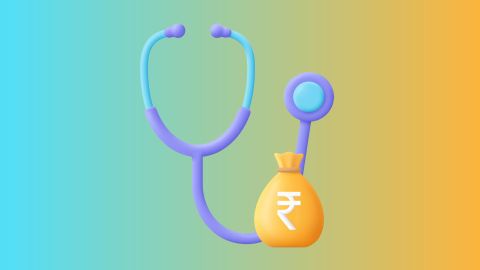Are you aware of how crucial hearing tests are in diagnosing and treating hearing impairments? If you are in the medical field, you know the value of having the right equipment. One of the most essential tools is the audiometer. This device helps healthcare professionals measure hearing acuity. Whether it is an impedance audiometer, pure tone audiometer, or speech audiometer, understanding their functionality is vital. This article delves into the meaning, types, uses, benefits, and prices of audiometer machines. We will also explore the financing options available through Bajaj Finserv Medical Equipment Finance. Let’s dive into the world of audiometers and see how they can enhance your medical practice.
What is an audiometer machine?
An audiometer is a machine used to check how well someone can hear. It usually has a main unit connected to headphones and a button for the patient to press. The audiologist plays sounds at different volumes and pitches, and the patient responds. Common types include impedance, pure tone, and speech audiometers, each used for specific tests to assess hearing ability accurately.
Types of audiometer machines in India
There are several types of audiometer machines used for hearing tests in India, each designed for different testing needs:
- Diagnostic Audiometers: High-end devices used for comprehensive hearing evaluations in clinics, providing detailed test results across various frequencies.
- Screening Audiometers: These are simpler machines used for quick hearing checks, commonly employed in schools or during basic health screenings.
- Portable Audiometers: Compact and lightweight, these are designed for use in different locations, such as mobile clinics or outdoor testing.
- Impedance Audiometers: Focus on assessing the middle ear's functionality, testing how the eardrum reacts to changes in air pressure.
- Pediatric Audiometers: These audiometers are specifically tailored for children, offering features that make the test more engaging and age-appropriate.
- Clinical Audiometers: Advanced devices used in medical settings for precise and thorough hearing tests, suitable for diagnosing complex hearing issues.
Each of these audiometers serves a specific purpose, allowing for accurate and effective hearing assessments tailored to various patient needs. Similarly, technologies like nano machines are increasingly being adopted in medical fields for precision and specialised applications.
Uses of audiometer machines
1.Hearing tests
Audiometers are primarily used to conduct hearing tests, identifying hearing loss levels.
2.Diagnostic tool
They help diagnose conditions like tinnitus, otitis media, and hearing nerve damage.
3.Fit for hearing aids
Audiometers ensure that hearing aids are correctly fitted to the patient's hearing needs.
How Does an Audiometer Machine Work?
- The device makes pure sounds at specific frequencies, from 125 Hz to 8000 Hz for standard tests and up to 20,000 Hz for high-frequency tests
- The audiometer then changes the sound using a device that adjusts the volume up or down in small amounts
- After adjusting the sound, it is sent to the patient through special headphones or speakers
- The patient is given a button to press whenever they hear a sound
- The audiologists record the patient’s hearing limits on a chart called an audiogram. This chart helps to identify the type and level of hearing loss
If you are involved in laboratory testing, devices like the centrifuge machine play a similar role in ensuring accuracy and precision in test results.
Components of an Audiometer Machine
1. Oscillator: The oscillator makes a range of different frequencies and produces pure tones at various frequencies
2. Attenuator: It changes the loudness of the sound, letting the audiologists make the sound louder or quieter in small steps
3. Transducer: The transducer turns electrical signals into sound. There are different types of transducers:
- Headphones: Used for air conduction tests, delivering sound directly into the ear canal
- Bone vibrators: Used for bone conduction tests, sending sound through the skull bones to the inner ear
- Loudspeakers: Used in sound field tests to check hearing without headphones
4. Microphone: It records the patient's spoken answers during speech tests, helping to check how well they understand and repeat words or sentences
5. Response button: It lets patients signal when they hear a sound by pressing a button
6. Display and control panel: The control panel has buttons, dials, and a display screen, allowing the audiologists to choose frequencies and change the sound level
7. Amplifier: It boosts weak electrical signals from the oscillator before they are made louder, ensuring the sound is clear and accurate
Benefits of using audiometer machines
1.Accurate results
Audiometers provide precise hearing loss measurements.
2.Versatile applications
Suitable for various age groups, from children to the older adults.
3.Enhanced patient care
Improves the quality of care through detailed hearing assessments.
For surgical environments, devices like the cautery machine are essential in ensuring precision during operations.
Who used an audiometer machine?
Audiometers are primarily used by trained medical professionals who specialize in hearing tests. This includes licensed audiologists, otolaryngologists (ear, nose, and throat doctors), and other certified physicians. Certified technicians can also conduct tests, provided they demonstrate competence in using the equipment and conducting audiometric exams. These professionals ensure that the tests are accurate and reliable, maintaining the audiometer's proper functioning and calibration. Some technicians receive training through specific courses, while others may learn on the job, gaining the skills needed to perform effective hearing assessments.
What is the purpose of an audiometer machine?
1.Early detection
Early detection of hearing loss can significantly improve treatment outcomes.
2.Customised treatment
Helps tailor treatment plans based on individual hearing profiles.
3.Monitoring progress
Regular use monitors the effectiveness of hearing treatments or aids.
Audiometer machine prices in India:
The price of audiometers in India ranges from INR 45,000 to INR 3.4 lakh, depending on factors like the type, brand, and model you choose. Below is a detailed price list for your reference:
S.No |
Audiometer Products |
Price (INR) |
1 |
Arphi Proton SX3 Portable Audiometer with PC Connectivity |
57,000 |
2 |
RMS Hermes D Audiometer with Speech |
56,000 |
3 |
Interacoustics AD528 Diagnostic Audiometer |
229,500 |
4 |
Proton DX3 Portable Digital Audiometer |
47,500 |
5 |
RMS Hermes 2 Channel Digital Clinical Audiometer |
135,000 |
6 |
Inventis Harp Plus Diagnostic Audiometer |
162,400 |
7 |
Arphi Proton SX5 Digital Portable Audiometer |
68,000 |
8 |
Arphi Proton SX5 Portable Audiometer with PC Connectivity |
78,000 |
9 |
Kiversal Audixi 10A Screening Audiometer |
196,000 |
10 |
Arphi 2001 Diagnostics Audiometer |
92,500 |
Factors to Consider When Purchasing an Audiometer Machine
Before buying an audiometry machine, it is important to do your research and think about what you need for your work. Here are some things to look at:
1. Type of audiometer
2. Brand reputation and quality
3. Features and functions
4. Testing capabilities
5. Portability and size
6. Support and warranty
7. Budget
Keep in mind that picking an audiometer takes careful thought to make sure it meets your needs and gives accurate, reliable results for hearing tests.
Buying guide for audiometer machines
Consider your needs
Evaluate the types of audiometers and their specific uses for your practice.
Check reviews
Look for reviews and ratings from other medical professionals.
Compare prices
Compare prices from different suppliers to get the best deal.
Financing options for audiometer machines
With Bajaj Finserv Medical Equipment Finance, you can easily finance your audiometer machine. They offer flexible repayment options and competitive interest rates, making it affordable to equip your practice with the latest technology.
Choosing the best audiometer machine
Identify your requirements
Determine whether you need an impedance, pure tone, or speech audiometer.
Quality and durability
Ensure that the machine is of high quality and durable for long-term use.
After-sales support.
Choose a supplier that offers excellent after-sales support and maintenance services.
Conclusion
Investing in an audiometer machine can significantly enhance your practice's ability to diagnose and treat hearing impairments. The right equipment ensures accurate results and improves patient care. If financing is a concern, consider the options provided by Bajaj Finance, including medical equipment finance and doctor loans.
Make a smart choice and ensure that your patients receive the best possible care. Additionally, for those looking into respiratory devices, exploring options like the oxygen making machine can provide high-quality air and support patients in need of respiratory care.
Related machines
Check the table below for information on related machines:




